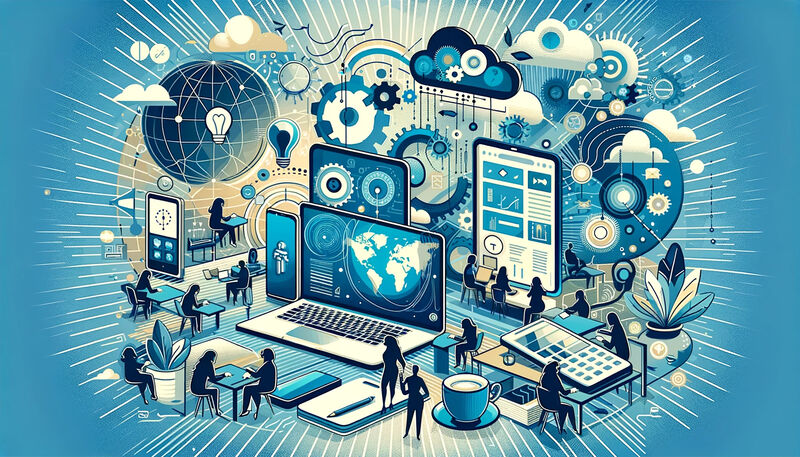The Evolution of Remote Work: Technology's Role in Shaping the Future Workplace

The concept of remote work has been radically transformed over the past few years, largely due to advancements in technology. From cloud computing to collaboration tools, technology has dismantled traditional office boundaries, enabling a future where work can happen from anywhere. This article explores the evolution of remote work, the technological innovations driving this trend, and the implications for the future workplace.
The Shift to Remote Work
The transition to remote work, accelerated by the COVID-19 pandemic, has become a permanent reality for many organizations worldwide. This shift has prompted a reevaluation of work culture, productivity measures, and the very definition of the workplace.
Technological Enablers of Remote Work
- Collaboration Tools: Platforms like Slack, Microsoft Teams, and Zoom have become indispensable, allowing teams to communicate and collaborate effectively, irrespective of their physical locations.
- Cloud Computing: The cloud has been a game-changer, providing remote access to data and applications, facilitating real-time collaboration, and offering scalable resources to meet varying business needs.
- Cybersecurity: With the rise of remote work, ensuring data security has become paramount. Advances in cybersecurity, including VPNs, encryption, and multi-factor authentication, have been crucial in protecting sensitive information outside traditional office environments.
Implications for the Future Workplace
- Work-Life Balance: Remote work offers flexibility, potentially improving work-life balance. However, it also blurs the lines between work and personal life, presenting new challenges in maintaining boundaries.
- Global Talent Pool: Organizations can tap into a global talent pool, hiring the best candidates regardless of their geographical location, which could lead to more diverse and skilled teams.
- Sustainability: Reduced commuting and office space can contribute to lower carbon footprints, aligning with broader environmental sustainability goals.
Challenges and Future Directions
While remote work offers numerous benefits, it also presents challenges such as isolation, collaboration hurdles, and the need for effective remote management strategies. As we look to the future, organizations will need to address these challenges, fostering a culture that supports remote work while maximizing its benefits.
Conclusion
Technology has been the cornerstone of the remote work revolution, breaking down geographical barriers and redefining the workplace. As we continue to navigate this new normal, the interplay between technology and human-centric work practices will shape the workplaces of the future, promising greater flexibility, diversity, and sustainability.

